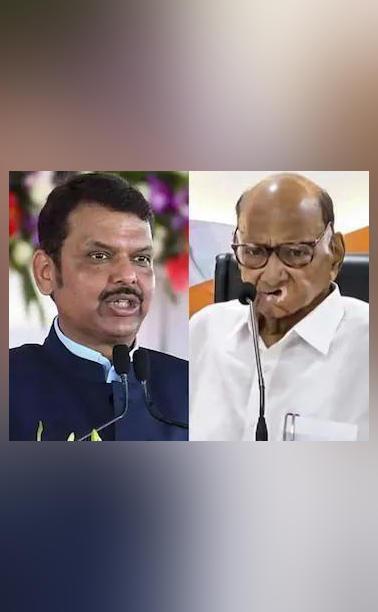
Why is Pawar Disclosing this Now: Fadnavis on ‘Seat Guarantee’ Claim
In a recent development, Nationalist Congress Party (NCP) chief Sharad Pawar has made a sensational claim that two individuals had approached him before the 2024 Maharashtra polls, promising that the Opposition would win in as many as 160 of the 288 seats. This claim has raised many questions, and Maharashtra Chief Minister Devendra Fadnavis is among those who are seeking answers.
Fadnavis, in a recent statement, questioned why Pawar is disclosing this information now, rather than earlier. He asked, “Why is Pawar disclosing this after Rahul Gandhi’s claims?” Gandhi, the Congress leader, had recently made similar claims, and Fadnavis seems to be suggesting that Pawar’s claim is an attempt to capitalize on the prevailing political scenario.
Fadnavis’s statement is not without merit. Pawar’s claim does seem suspiciously timed, given the current political climate. In recent weeks, there have been several instances of political leaders making claims about secret meetings and promises of support. It is not clear why Pawar is choosing to disclose this information now, rather than earlier.
One possible reason for Pawar’s timing is to deflect attention from Gandhi’s claims. Gandhi had recently made a similar claim, stating that a prominent businessman had approached him with an offer to support the Congress party in the 2024 polls. Gandhi’s claim was met with skepticism by many, and Pawar’s disclosure may be an attempt to lend credibility to his own claim.
However, Fadnavis is not convinced. In his statement, he compared Pawar’s claim to a Bollywood script, saying that it “sounds like a Salim-Javed script”. Salim-Javed is a famous screenwriting duo responsible for some of India’s most iconic films, including the classic thriller “Sholay”. Fadnavis’s comment suggests that he believes Pawar’s claim is nothing more than a cleverly crafted story designed to manipulate public opinion.
Fadnavis’s skepticism is not unfounded. Pawar’s claim is based on a conversation he had with two unknown individuals who approached him before the 2024 polls. However, the details of this conversation are sketchy, and it is not clear why Pawar is only now choosing to disclose this information.
It is also worth noting that Pawar’s claim has been met with skepticism by many political analysts. They point out that Pawar’s party, the NCP, has a history of making sensational claims in order to gain attention and sympathy. In recent years, the NCP has made several claims about secret meetings and promises of support, only to later retract them or deny them altogether.
In conclusion, Fadnavis’s question about why Pawar is disclosing this information now is a valid one. Pawar’s claim seems suspiciously timed, and it is not clear why he is choosing to disclose this information now rather than earlier. Fadnavis’s comparison of Pawar’s claim to a Bollywood script is also apt, given the sensational and attention-grabbing nature of the claim.
Ultimately, the truth behind Pawar’s claim will only be revealed with further investigation and scrutiny. However, one thing is clear: the disclosure of this information has raised many questions, and the public is waiting for answers.






